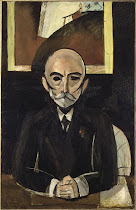Book Review
I finally found Eichmann in Jerusalem in Washinton DC in a used book store. It proved to be one of my favourite nonfiction books for its topic (the trial of a Nazi in Israel) and for the author's (Hannah Arendt's) insight.
Background
After World War II, most of the defeated Nazi leadership had committed suicide. The remains were hung at the Nuremberg Trials (1945). Some of the Nazi leadership had escaped abroad. In 1960, Adolf Eichmann was abducted from Argentina by Israeli agents and put on trial in Israel for 'crimes against humanity'. His role in the Nazi party was in transportation -first deporting Jews abroad and then to extermination camps.
1. The banality of Eichmann
Yes, Eichmann was guilty and it was obvious that he would hang. But the trial was tied up in Israel announcing its power to the world and seeking a dramatic catharsis. The proceedings became a stage for Holocaust survivors to tell their stories (and who would deny them that right?). It was a long attempt to paint Eichmann as a murderous monster. The truth was more sinister. Arendt paints Eichmann as a cliche bureaucrat still irked from being passed over for promotion. He seemed equally satisfied deporting Jews (and wasn't this saving them?) from Germany before he was ordered to send them to death camps when the Final Solution began. He's frustrating because he fails at being a villain.
2. Judenrat. Jewish collaboration with Nazis.
Eichmann, who began his job by helping to deport Jews, often sought leaders in the Jewish community. Arendt insists that the Holocaust would not have been as successful without the help of local Jewish leadership collecting information for Nazis, maintaining a semblance of normality, and policing the ghettos. "The whole truth was that if the Jewish people had really been unorganized and leaderless, there would have been chaos and plenty of misery but the total number of victims would hardly have been between four and a half and six million people."
3. Stateless people.
The people that the Nazi party had the most success deporting and murdering where stateless. There was more resistance if they had citizenship. I feel that this provides real preventative information for future state extermination projects. If your state is denying citizenship to refugees they are enabling genocide. Romania and Hungry had particularly murderous governments. Eichmann was more active in these areas than in Poland where most of atocities from the testimonies took place.
4. Denmark was the exception
In Denmark there was more assistance for Jews to escape (to Sweden) than any other country. I have seen this mentioned several times. In Glover's book about 20th Century morality called Humanity and in this book. Both times there are were no specific cases only general mentions of money and lodging provided for escaping Jews.
5. Justice
Justice cannot be separated from history. Even the judges striving for objective sentencing end up performers in a revenge play.
The top photo is notorious. A man looks at the camera about to be executed in a ditch. It is a memento for the murderers who wrote "Last Jew of Vinnitsa" on the back.
Wednesday, September 9, 2009
Subscribe to:
Post Comments (Atom)






No comments:
Post a Comment